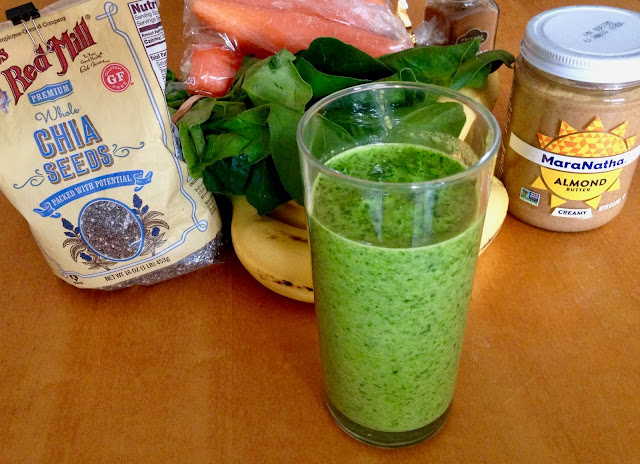My sleep post was apparently so boring that most of my remaining followers immediately cancelled their feeds.
So in this post I will give the audience what they want — the one thing that endurance athletes actually all seem to care about — discussion about smoothies.
Yes since last summer I have been making smoothies every morning. Originally the idea was to simply trick myself into eating more vegetables (when you are surrounded by Vegan triathletes demonizing meat and dairy, and Paleo Diet triathletes demonizing bread and fruit, you can’t help but start to feel that vegetables are the only safe food choice).
Now in addition to improving basic daily nutrition, I learn that smoothies have performance-boosting powers*
Was my recent PB at Toda 10k due to the smoothies?
I am a sloppy and lazy cook, but even for me making a smoothie is a forgiving enough process to be almost fun. Now I am finally adhering to nutritionists recommendation to have vegetable at every meal (the trick is to add just enough fruit to make the smoothie taste like the sweet American breakfasts I grew up with, while still tossing in a full serving of vegetables). Moreover the texture and green hue of the smoothies just feels and looks so darn healthy that I simply feel stronger as I drink it (OK, maybe this is a placebo effect, but as more knowledgeable athletes have told me about the placebo effect, if it works -- bring it on).
I am a sloppy and lazy cook, but even for me making a smoothie is a forgiving enough process to be almost fun. Now I am finally adhering to nutritionists recommendation to have vegetable at every meal (the trick is to add just enough fruit to make the smoothie taste like the sweet American breakfasts I grew up with, while still tossing in a full serving of vegetables). Moreover the texture and green hue of the smoothies just feels and looks so darn healthy that I simply feel stronger as I drink it (OK, maybe this is a placebo effect, but as more knowledgeable athletes have told me about the placebo effect, if it works -- bring it on).
So here is my special, performance-enhancing recipe:
- Spinach
- Carrots
- Almond Butter
- Chia Seeds
- Bananas
I will be sure to track whether my special smoothie diet leads to further race improvements.
- Yes, that's right, my takeaway after recently listening to hours of seemingly authoritative fitness podcasts is that diet, particularly smoothies, are the primary driver of endurance sports performance. Personally I had always thought that the key variables were genetics and training, with belief and execution playing a key role, and things like sleep, stress, and diet being merely factors that if neglected could derail the rest of your program. But apparently it is mostly about the smoothies.


